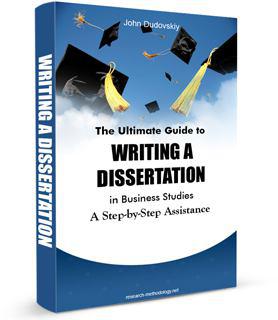Dealing with Supervisor
Research supervisors play a great role in the success of your project; therefore, it is important to establish appropriate and beneficial relationships with your supervisor from the beginning of your research process. Dealing with supervisor is a critical success factor impacting the outcome of the project
In some universities you are able to choose your dissertation supervisor. If this is the case with your university, then you should give preference to more experienced supervisor in your research area.
You must have realistic expectations. Do not expect your supervisor to immerse in your work in great details. The responsibility of your supervisor is to direct you towards the right path no to complete research on your behalf. Do not expect your supervisor to immerse in your work in great details
Adhering to the following principles can increase the quality of your interactions with your supervisor significantly making your task of producing a quality dissertation much easier:
1. Take time to prepare for each meeting with your supervisor. You will have only a limited number of meetings with your supervisor and you must strive to make the most of each meeting. It is critically important to address each point mentioned by your supervisor during the last meeting.
2. Respect the time of your supervisor. Supervisors are usually dealing with a number of students writing dissertation simultaneously, and most of them have teaching classes as well. You must prepare questions for your supervisor in advance, and refrain asking unintelligent questions such as if you need to put course title on the cover of your work or asking questions about submission date which can be found on dissertation handbook. Asking such questions is a waste of time for you and your supervisor and it will most likely annoy your supervisor.
3. Communicate with your supervisor clearly and regularly. Supervisors cannot read your mind. You need to be able to communicate the points you want to discuss in a clear and unambiguous manner both forms, verbal and written.
4. Write your-emails appropriately. Grammar rules are sometimes neglected in writing e-mails between friends and colleagues; however this should not be the case in your communications with your supervisor. Try to keep e-mails brief and to the point. You should avoid frustrating your supervisor with lots of e-mail attachments and try to minimize the number of your questions to 4-5 per email and present your points using bullet points.
 My e-book, The Ultimate Guide to Writing a Dissertation in Business Studies: a step by step assistance offers practical assistance to complete a dissertation with minimum or no stress. The e-book covers all stages of writing a dissertation starting from the selection of the research area to submitting the completed version of the work before the deadline.
My e-book, The Ultimate Guide to Writing a Dissertation in Business Studies: a step by step assistance offers practical assistance to complete a dissertation with minimum or no stress. The e-book covers all stages of writing a dissertation starting from the selection of the research area to submitting the completed version of the work before the deadline.
John Dudovskiy
